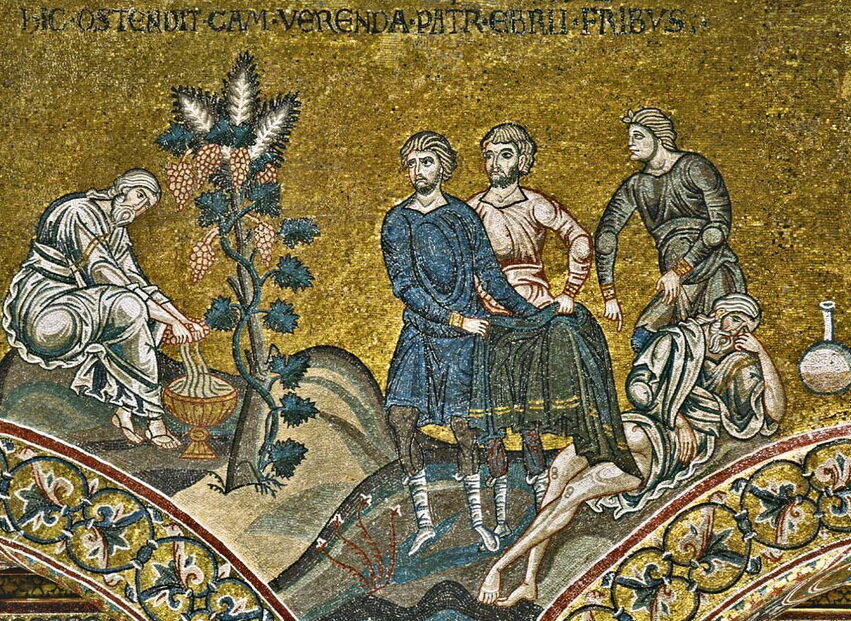Essential Equipment

I sometimes wonder how many thousands of murdered goblins can be blamed on adventurers becoming violent while suffering from alcohol withdrawal.
My suspicion is that in your average medieval fantasy world, there are a lot of adventurers running around with alcohol use disorders. It's hard to be sure which disorder they might have, mind you. Until earlier this year, medicine broadly split substance misuse into two categories: substance abuse, wherein a person tended to consume too much of a substance such that it interfered in their quality of life or daily functioning, and substance dependence, wherein a person was physically or psychologically dependent on a substance and either couldn't function without it or needed ever-increasing doses due to having developed a tolerance to it. Since the Diagnostic and Statistical Manual of Mental Disorders Fifth Edition (DSM-5) came out last may, though, we now just talk about "addictions," a category which includes both of those, and my suspicion is that a lot of adventurers meet the criteria. Consider a few of these scenarios, all of which I've personally seen happen in games that I've been in during the past six months, and decide if any of them sound like things you've seen characters do.
1) Although dangerously short on time and being actively pursued by powerful adversaries, the party stops to loot a wine cellar, taking extra time to ensure that they find the really expensive stuff, which they later drink.
2) As a village burns down around them, a character charges headfirst back into the flaming tavern, shouting, "save the beer!"
3) The storyteller announces an evening of downtime in the new city. Without missing a beat, a player immediately announces, "I get drunk at a bar and pick a fight with a farmer."
If I was evaluating a patient who told me they had been in any of these three situations -- as the character, of course, not the player -- I would immediately assume that they had an alcohol use disorder until they convinced me otherwise. None of them are that far-fetched, either. Even those characters who don't drink much likely have a higher alcohol intake than your average modern Westerner, since in a medieval setting, a certain percentage of people drink low-alcohol "small beer" instead of the much more dangerous substance known as "water." Plenty of characters in our games are hard-drinking, bingeing individual who expend enough money at the local taverns that it's a wonder they can still afford any wondrous items. I'm not criticizing this, and I don't see anything wrong with a player living something like that out in a fantasy, but just as it's a rare storyteller who can remind a player that their character feels pain, we don't often remember that actions have consequences, and the consequence of a two-week non-stop drinking binge is often withdrawal.
Alcohol withdrawal is nasty business. Most drug withdrawals are unpleasant, but alcohol withdrawal is among the relatively few that can be physically dangerous. The tricky thing about alcohol withdrawal, as opposed to other withdrawals, is that alcohol has such a profound effect on the brain, depressing neural activity. Remember that the withdrawal from most substances manifests as the opposite of whatever the substance does to you, so alcohol withdrawal manifests as a hyperactivation of all sorts of body symptoms. The blood pressure spikes, people experience anxiety and become restless, the body temperature rises, headaches develop, sleep is disturbed, and if it's severe, the sufferer may begin to experience seizures. Permanent brain damage can result, although this is usually seen only in people with long, long alcoholism histories and the history of poor nutrition and poor self-care that tends to come with it. Most adventurers probably don't abuse alcohol badly enough to develop the really severe symptoms, but when you take someone who's been drinking four beers per night at the local tavern every night for the past eight weeks, and then set them on the road with no alcohol at all for a three week journey, you wouldn't be surprised to see them develop some of the low grade signs of withdrawal. Those signs would include a generalized anxiety, headaches, stomach upset, and a profound irritability and short temper.
Now, take an achy, restless, angry man who's already prone to violence, stick a sword in his hand, and point him towards a cave filled with harmless creatures that's he's been trained to dislike and given permission (and often encouragement) to kill, and what do you get? An empty goblin warren.
And that's why I suspect that a lot of mayhem, carnage, and death in fantasy worlds can be blamed on alcohol withdrawal. These tragedies might be avoidable if adventurers either drank less, or else drank far more, and brought adequate doses of alcohol with them on the road to stave off running dry. Unfortunately, as well all know, adventurers seldom if ever know exactly how long they'll end up on the road (or trapped in a maze, or locked in a dungeon, or whatever) before they set out.
Fortunately, most fantasy worlds don't have an analog of benzodiazepines, or else whole nations would undoubtedly be destroyed whenever high-level characters started to run low of supplies.
More than four years ago, Dr. Eris Lis, M.D., began writing a series of brilliant and informative posts on RPGs through the eyes of a medical professional, and this is the one that appeared here on November 10, 2013. Lis is a physician, gamer, and author of the Skirmisher Publishing LLC OGL sourcebook Insults & Injuries, which is also available for the Pathfinder RPG system.






